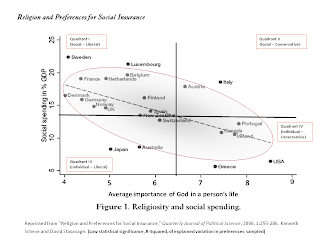Previous discussions inferred to the
distribution aspects of culture economics and this document presentation
reflects the discussion more directly using the same 2010 - 2011 business
phases analysis where market capitalization of the same companies within the conceptual business phases arrangement as operating income is used. The
basic analysis lends itself for updates with 2016 performance figures and will
undoubtedly reveal similar if not the same summary conclusions. The market
values for the companies within distribution of each industry averages lower
capitalization than companies within each of the other business phases; however,
distribution achieves comparable operating performance figures [lower priced
equity for the same or comparable market performance]. Culture attempts to
control the distribution of wealth using a morality philosophy to accumulate
benefits measured by financial capital for the management of manufacturing
(reproduction relationships).
Evident by the Comparable Business System Competitive Analysis, some industry business models include distribution as part of manufacturing systems. Others have the impact of distribution in financial capital profitability. An example would be the cost of maintaining the interstate highway system is separate from the cost of manufacturing automobiles; but, is a factor in the price / cost of consumer automobile ownership. Another would be separating the business of generating electricity from the cost of maintaining the grid infrastructure leading to economic constraints to manage infrastructure maintenance. Social equivalency attempts to distribute financial capital economics using a political morality definition among the population for wealth accumulations while conducting nationalist "geneticide" programs to justify ideology and reducing human capital, social value [human value, social capital].



Regional History (as explained by
wikipedia) of French, British, Spanish, Confederacy, and The United
States
The European
settlement of Mobile, then known as Fort Louis de la
Louisiane, started in 1702, at Twenty-seven Mile Bluff on the Mobile River,
as the first capital of the French colony of Louisiana.
It was founded by French Canadian brothers Pierre Le Moyne
d'Iberville and Jean-Baptiste Le
Moyne, Sieur de Bienville, to establish control over France's
Louisiana claims. Bienville was made governor of French Louisiana in 1701.
Mobile's Roman Catholic parish was established on July 20, 1703, by Jean-Baptiste de
la Croix de Chevrières de Saint-Vallier, Bishop of Quebec.[24] The
parish was the first established on the Gulf Coast of
the United States.[24] In
1704 the ship Pélican delivered
23 French women to the colony; passengers had contracted yellow fever at
a stop in Havana.[25] Though
most of the "Pélican girls"
recovered, numerous colonists and neighboring Native Americans died from the
illness.[25] This
early period was also the occasion of the arrival of the first African slaves,
transported aboard a French supply ship from Saint-Dominguein
the Caribbean.[25] The
population of the colony fluctuated over the next few years, growing to 279
persons by 1708, yet descending to 178 persons two years later due to disease.[24]
These additional
outbreaks of disease and a series of floods caused Bienville to order the town
relocated several miles downriver to its present location at the confluence of
the Mobile River and Mobile Bay in
1711.[26] A
new earth and palisade Fort Louis was constructed at the new site during this
time.[27] By
1712, when Antoine Crozat took
over administration of the colony by royal appointment, its population reached
400 persons. The capital of La Louisiane was
moved to Biloxi in
1720,[27] leaving
Mobile in the role of military and trading center. In 1723 the construction of
a new brick fort with a stone foundation began[27] and
it was renamed Fort Condé in
honor of Louis Henri, Duc
de Bourbon and prince of Condé.[28]
While the British
were dealing with their rebellious colonists along the Atlantic coast, the Spanish entered
the war as an ally of France in 1779. They took the opportunity
to order Bernardo de
Galvez, Governor of Louisiana, on an expedition east to retake
Florida.[34] He
captured Mobile during the Battle of Fort
Charlotte in 1780, as part of this campaign. The Spanish wished
to eliminate any British threat to their Louisiana colony, which they had
received from France in the 1763 Treaty of Paris.[33] Their
actions were condoned by the revolting American colonies, partially evidenced
by the presence of Oliver Pollack, representative of the American Continental
Congress. Due strong trade ties, many residents of Mobile and West Florida remained
loyal to the British Crown.[33][34] The
fort was renamed Fortaleza
Carlota, with the Spanish holding Mobile as a part of Spanish West Florida until
1813, when it was seized by United States General James Wilkinson during
the War of 1812.[35]The
British were eager not to lose any useful inhabitants and promised religious
tolerance to the French colonists; ultimately 112 French Mobilians remained in
the colony.[31] The
first permanent Jewish presence in Mobile began in 1763 as a result of the new
religious tolerance. Jews had not been allowed to officially reside in colonial
French Louisiana due to the Code Noir,
a decree passed by France's King Louis XIV in 1685 that forbade the exercise of
any religion other than Roman Catholicism, and ordered all Jews out of France's
colonies. Most of these colonial-era Jews in Mobile were merchants and traders
from Sephardic Jewish communities in Savannah and Charleston; and they added to
the commercial development of Mobile[32] ... [31] During
the American
Revolutionary War, West Florida and Mobile became a refuge for loyalists fleeing
the other colonies.[33]


















